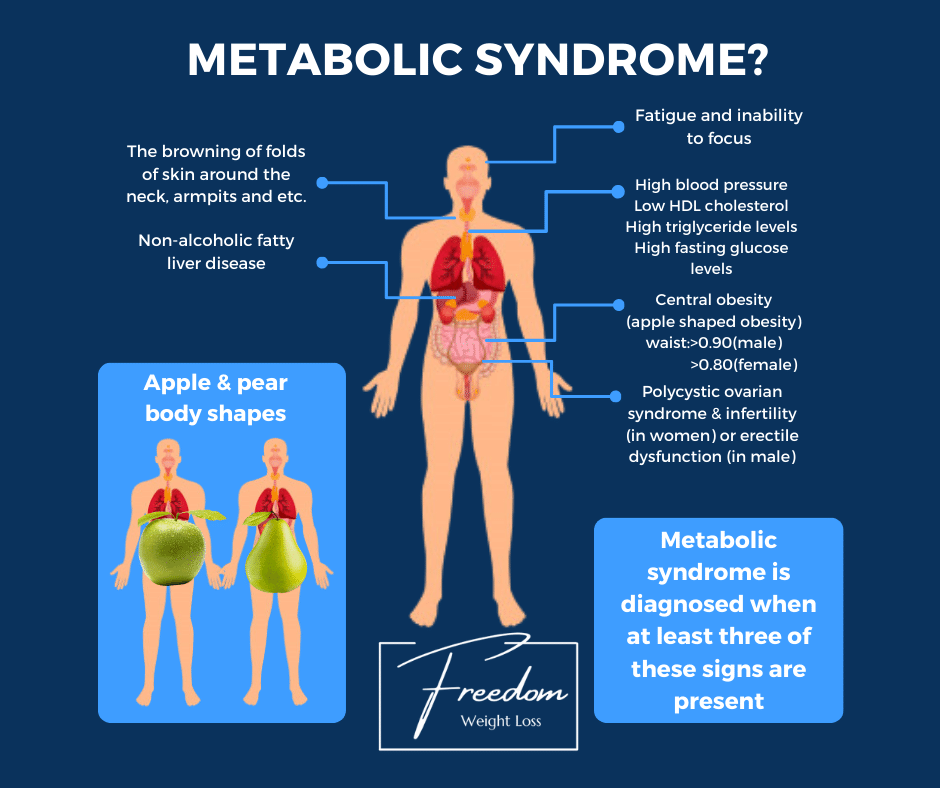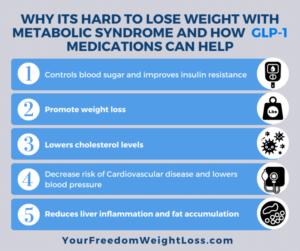What is Metabolic Syndrome
Metabolic syndrome affects millions of people. It is a cluster of interconnected factors, including high blood pressure, elevated blood sugar levels, excess body fat around the waist, and abnormal cholesterol levels. As metabolic syndrome becomes more prevalent, people are seeking answers to various questions about this complex condition. In this blog post, we will address some of the most common questions surrounding metabolic syndrome.
What causes metabolic syndrome?
Metabolic syndrome does not have a single cause but is often attributed to a combination of factors such as obesity, sedentary lifestyle, insulin resistance, genetic predisposition, and unhealthy eating habits. These factors can contribute to the development of metabolic abnormalities, which are then called Metabolic Syndrome.
How is metabolic syndrome diagnosed?
To diagnose metabolic syndrome, healthcare professionals assess an individual’s blood pressure, waist circumference, blood sugar levels, and cholesterol levels. Generally, if a person has three or more of the following criteria, they are considered to have metabolic syndrome: elevated blood pressure, high fasting blood sugar, high triglyceride levels, low levels of HDL cholesterol, and an increased waist circumference.
Does metabolic syndrome increase the risk of other health conditions?
Yes, metabolic syndrome significantly increases the risk of developing several serious health conditions like type 2 diabetes, heart disease, stroke, and non-alcoholic fatty liver disease (NAFLD). It is crucial to address metabolic syndrome promptly to reduce the risk of these conditions.
Are there any specific diet recommendations for metabolic syndrome?
Following a healthy, balanced diet is important in managing metabolic syndrome. The focus should be on consuming whole foods, including fruits, vegetables, lean proteins, whole grains, and healthy fats. It is important to limit the intake of sugary beverages, processed foods, refined grains, and saturated and trans fats. Additionally, reducing sodium intake can help control blood pressure levels.
Can medications help in managing metabolic syndrome?
Medications to manage specific aspects of metabolic syndrome are often prescribed. Medications can be prescribed to control blood pressure, lower cholesterol levels, or regulate blood sugar, however this is really managing symptoms not treating the cause.
More recently, the GLP medications – Semaglutide, branded Ozempic and Wegovy, and Tirzepatide, branded Mounjaro, are being used to effectively control blood sugar levels and cholesterol, treat insulin resistance, help people lose weight, reduce fat accumulation in the liver, and reduce the risk of kidney and cardiovascular disease.
The Bottom Line
Metabolic syndrome is something that can be reversed. Through weight loss, healthy lifestyle choices, including a balanced diet, regular exercise, and appropriate medical interventions, people with metabolic syndrome can reduce the risk of associated health complications and improve overall well-being. GLP medications are an effective tool in the treatment and reversal of metabolic syndrome.





